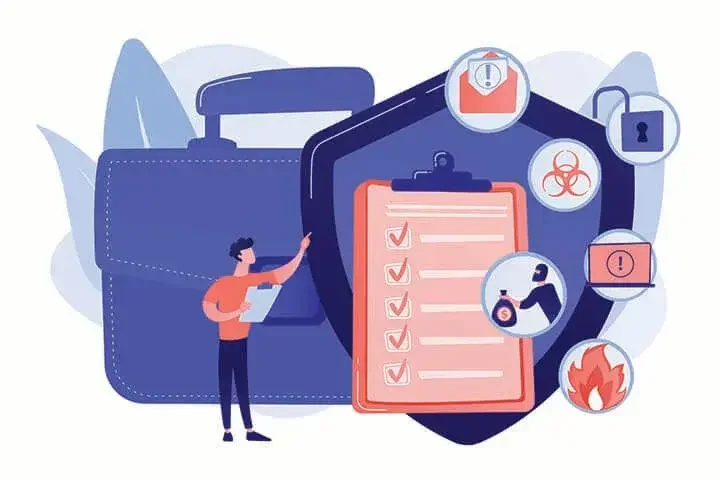In the wake of the COVID-19 pandemic that is affecting most of the world, employers find themselves in uncharted waters. Virtually overnight, they've had to navigate the "new normal" of collaborating and communicating through a variety of technology. It's a test of leadership that can be difficult for even the most skilled managers and business owners.

While some businesses may have a disaster recovery plan or a business continuity plan, it's likely that they weren't fully prepared for this situation, and almost no one had a pandemic emergency plan in place.
"The pandemic plan differs from the normal disaster recovery or business continuity plans in that it focuses more on people," says Denise Broady, chief operating officer (COO) of WorkForce Software, a Livonia, Mich.-based in workforce software solutions provider, and author of Driven to Perform: Risk-Aware Performance Management From Strategy Through Execution.
Key objective for leaders should be to ensure that team members have the resources as well as the support systems they need to do their jobs. "Your team needs to have a clear understanding of what you are asking of them, what is expected of them, how it will work, and what their priorities are," Broady says.
If you're a business owner, manager, or team leader, consider taking the following steps to keep your workers motivated and productive.
Communicate regularly with teams
Getting your team up and running remotely—especially for an undetermined amount of time—requires communicating with them often and in different formats. Broady says WorkForce Software has been doing general company-wide communications from leadership roughly every two weeks via a live video feed since remote work began. But that's just the start. She also recommends:
- Ongoing team communications, preferably through videoconferencing so team members can get face time with each other
- Weekly, company-wide email communications sharing employee guidance, customer correspondence, and other updates
- A dedicated COVID-19 portal and resource center for employees to get the latest updates from the company, as well as general information about the pandemic
Of course, every team and company will have different needs, so adapt accordingly. Broady's team is also trying to have fun through the process.
"One group starting wearing their favorite weekly hats on various calls, another group has compiled free workout videos and shared it with the entire company," she says.
Be transparent and visible
More than anything now, your employees need to see that you're there and that you're being honest with them.
"Your team can handle bad news, but they just can't handle no news. A lack of information will ensure they make up their own story, and that story will be 10 times worse," says Asheville, N.C,-based business growth expert Meridith Elliott Powell. "Put yourself in their shoes and think about what you want to know beyond your role, what questions you would have, and then share it all."
Leaders should also be visible to all team members, even those who aren't direct reports, she says. A daily or even weekly update from senior leadership will have a calming effect.
Have their backs
The pandemic and resulting economic impact have created a great deal of fear and anxiety among workers. In addition to worrying about the virus, employees worry about losing their jobs.
The key to keeping them motivated is to "ensure that every employee knows that we as the management team are trying to help preserve jobs/roles for the long-term," Broady says. At her firm, all leaders from the vice president up have delayed 50% to 100% of their bonuses until September to ensure the rest of the company gets a bonus in April.
"Transparency on financials and cash flow is critical at this time, especially for small/mid-size companies to help employees understand that we will weather the storm," she says.
Focus on empathy and trust
Leaders need to understand that employees have so much more going on now than just their jobs, Powell says. "They are worried about their children, their parents, their futures. So as the leader, you need to focus on doing what it takes to enhance the relationships you have and deepen the trust with each team member," she says.
Focus some of your communication on your team members' needs and show that you understand what they're going through during this natural disaster. If you notice changes, whether positive or negative, follow up with personal communication. Pass along helpful information, such as articles about topics relevant to them, such as how to work from home, how to help children thrive through a crisis, and why self-care is more important than ever, she says. Each of these actions shows that you care about the individual, which strengthens relationships and builds trust.
"Down the road, you are most likely going to have to ask your teams to change, or push out of their comfort zone even further, so you want to invest in them before you ask them to invest in you," she says. By focusing on honest, emotionally intelligent, and sincere communication and transparency, you provide incentives for employees to do their part to weather the storm.

